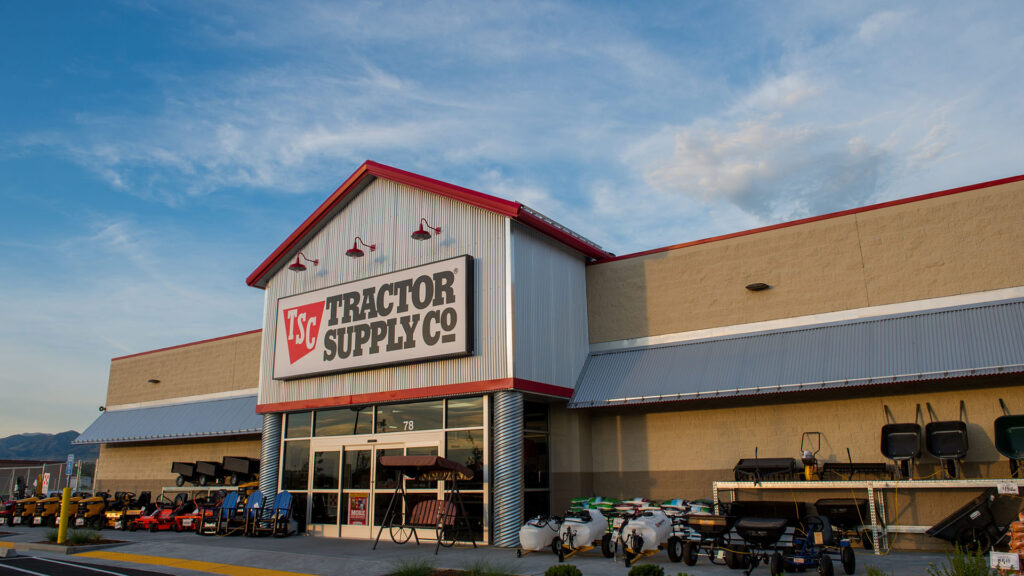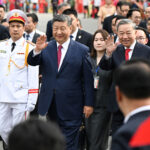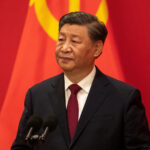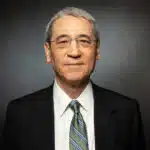In a surprising move, Tractor Supply, a major farm supply retailer, announced it will eliminate its Diversity, Equity, and Inclusion (DEI) roles, cease its carbon emissions goals, and sever ties with an LGBTQ advocacy group.
This decision follows a social media campaign spearheaded by conservative commentator Robby Starbuck, who called for a boycott of the company’s “woke” policies over the past three weeks.
Customer Feedback and Corporate Response
Tennessee-based Tractor Supply, an 85-year-old company with 2,250 stores nationwide, cited customer feedback as the catalyst for its policy changes. “We have heard from customers that we have disappointed them,” Tractor Supply said in a statement on Thursday. “We have taken this feedback to heart.”
The retail chain, known for selling home improvement equipment, livestock, and agricultural supplies, revealed plans to stop sponsoring Pride festivals and end its partnership with the LGBTQ advocacy group Human Rights Campaign.
Additionally, Tractor Supply will eliminate its DEI roles and retire its current DEI goals, while still striving to ensure a respectful work environment.
Shift in Focus to Traditional Causes
Moving forward, Tractor Supply aims to bolster its support for veteran causes, emergency response agencies, animal shelters, state fairs, rodeos, and farmers’ markets. This pivot reflects a strategic shift towards more traditionally conservative community engagements.
Robby Starbuck, who led the boycott campaign, declared victory on X (formerly known as Twitter). In an eight-minute video, Starbuck stated, “We have extracted the largest concessions in the history of boycotts.” He praised Tractor Supply for ending its association with the Human Rights Campaign, which he claimed promotes a “woke” and LGBTQ agenda in corporate America.
https://x.com/robbystarbuck/status/1806535979492078076?ref_src=twsrc%5Etfw%7Ctwcamp%5Etweetembed%7Ctwterm%5E1806535979492078076%7Ctwgr%5Ebe87046df482bc2db6f09b207a0deaf1a8d76d5b%7Ctwcon%5Es1_&ref_url=https%3A%2F%2Fnypost.com%2F2024%2F06%2F28%2Fbusiness%2Ftractor-supply-ends-woke-dei-climate-change-policies%2F
Human Rights Campaign’s Response
The Human Rights Campaign, which has collaborated with Tractor Supply for years to develop inclusive policies, criticized the company’s decision.
Eric Bloem, vice president of corporate advocacy at the Human Rights Campaign, stated, “Tractor Supply Co is turning its back on their neighbors with this shortsighted decision. LGBTQ+ people live in every Zip code in this country, including rural communities. We are shoppers, farmers, veterans, and agriculture students.”
Environmental Goals and Future Commitments
Tractor Supply also announced it will eliminate its carbon emissions goals, previously set to achieve net zero emissions in operations by 2040. Instead, the company will focus on land and water conservation efforts. This decision marks a significant shift from its earlier environmental commitments, which included increasing the representation of people of color in management and boosting business with diverse suppliers.
Impact on Corporate America
This policy reversal is one of the most notable corporate shifts away from progressive initiatives in recent years. It underscores the growing influence of consumer activism on corporate policies, particularly in politically charged environments.
Tractor Supply’s statement emphasized its ongoing commitment to listening to customers and employees: “We will continue to listen to our customers and Team Members. Your trust and confidence in us are of the utmost importance, and we don’t take that lightly.”
Historical Context of Boycotts
The Tractor Supply boycott is not an isolated incident. In recent years, consumer boycotts have significantly impacted several major brands. Bud Light experienced a sharp decline in sales after an advertisement featuring transgender social media influencer Dylan Mulvaney.
Similarly, Target saw a $10 billion drop in market valuation over ten days following a boycott related to its Pride collection, which included children’s clothing.
These events highlight the precarious balance corporations must strike between progressive initiatives and consumer sentiment, as they navigate an increasingly polarized marketplace.







